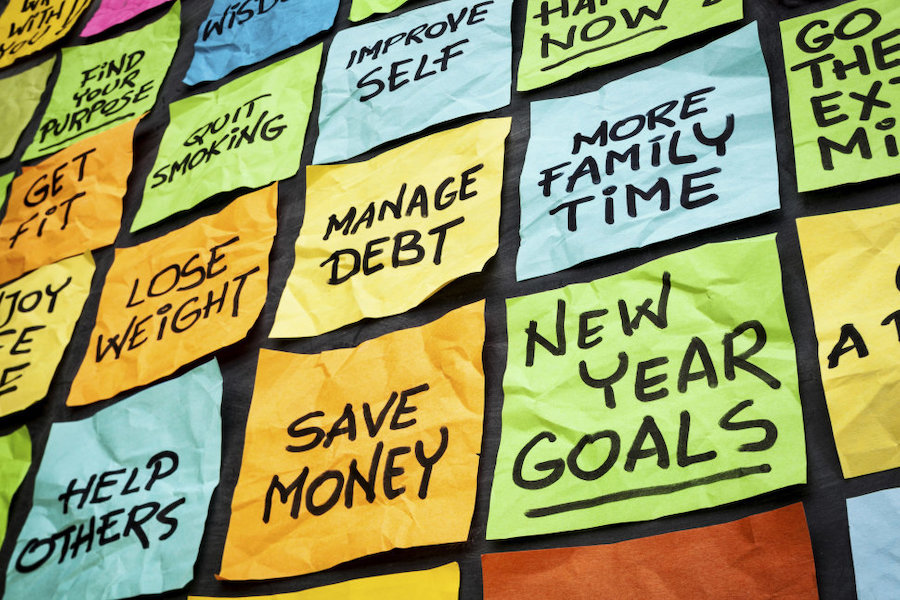Don’t put too much pressure on the new year
Photo courtesy of Joint Base San Antonio (https://www.jbsa.mil/News/Photos/igphoto/2001863643/)
These are common New Year’s resolutions.
December 31, 2019
The tradition of setting New Year’s resolutions dates back to nearly 4,000 years ago when ancient Babylonians promised gods to repay their dues and debts in the upcoming year. By either accomplishing or failing to do so, the pagan gods would either grant them a good or bad fortune.
Similarly, people in today’s day and age make resolutions to better themselves in the new year. Popular resolutions include dieting, exercising, losing weight, quitting smoking, picking up a new hobby, and even simply to read more.
But in the end, although all of these resolutions seem attainable to some degree, it is a well-known fact that only 8% of people accomplish their New Year’s resolutions. By the end of January, about 46% of new gym members drop their membership, and by the last three months of the year, only 20% of the original customers remain.
The tradition of celebrating the “new year” serves only as a way to boost business in certain industries. New Year’s sales account for 20% of annual retail sales and for many toy and game stores, this number increases to 30% of total sales. In the end, during the 2018 holiday season, spending was projected to reach over $730 billion.
Many companies also take advantage of the masses’ inclinations to set New Year’s resolutions, knowing that they will sign up for their services most often in January. Gyms will capitalize on the resolution of “exercising more” and set out deals such as offering $30 memberships instead of $300 memberships (Crunch Fitness) and reducing memberships from $139 per month plus a $199 enrollment fee to $99 per month plus a $1 enrollment fee (Purlife Fitness Center). Dieting programs such as Sprinly offer discounts using promotion codes in the spirit of the new year. Even brands such as Blue Apron, which deliver ready-to-make meals to people’s doorsteps, have partnered with weight loss programs such as Weightwatchers to deliver expert-approved meals to help eat right in addition to getting in shape.
Therefore, New Year’s resolutions are a complete sham. No one sticks to the goals that they have set out for themselves and even data can confirm that. We fail to realize that the passage of time does not mean that we will magically evolve into better human beings. Time simply allows us to realize the problems we have before pursuing more useful avenues of problem-solving to trump them.
Additionally, I often find that people, especially on the Internet, claim that an entire year was terrible because of certain events that occurred. They then look towards the upcoming year as a clean slate and hope that the next year will be better.
This sentiment is echoed in various social media platforms, namely that of Twitter. Through a simple search for any combination of the words “2019” and “bad” or “2019” and “terrible”, I am able to find a myriad of results with users complaining about the horrible experience they have had thus far.




Continuing this trend is Cut, a popular YouTube channel. In a video released on January 1 titled “Who’s Had the Worse Year?”, six people lined up to have their experiences in 2018 individually rated, from best to worst, by a group four others.
One unnamed participant came in prepared to convince the judges that he had the most terrible 2018.
“So, my 2018 sucked. I have a long list,” the participant said while taking the aforementioned list out of his pocket.
This entire video perpetuates negativity and seems to group the events happening by year, rather than focusing on individual undesirable events. Many of the comments on the video reflect the same toxic behavior among viewers, questioning whether some participants actually had the worst year in comparison to the others, and some even claiming that they had the “worse year”.




These tweets and comments speak not only towards confirming the general pessimism that is perpetuated by social media, but also the fact that people are not willing to accept that their life will go awry. It is not the fault of a certain year or a certain person, and in the end, we have to take responsibility for the bad things that have occurred. It does us no good to group our problems as things that will persist only in a single year while continually refusing to fix them.
Ultimately, we must acknowledge that we do have problems and find solutions for them. We must acknowledge the misfortunes that have troubled us and grow from them.
This year, instead of setting resolutions or hoping that things will go your way, take smaller steps to achieve a larger goal. Stay accountable—keep a journal. Recruit your friends to help you stay on track. And above all, be persistent. As cliché as it may sound, the smaller ripples will create a tsunami of change—you just have to focus on consistency.








